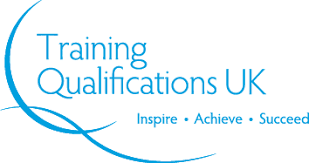Navigating the path to UK residency can be complex, especially when it involves marriage or a committed partnership. Understanding the process and requirements is essential for a smooth application. This guide will walk through the necessary steps, eligibility criteria, and other critical information that one must know to achieve UK residency via marriage or a partner route.
The UK offers several routes for individuals seeking residency through marriage or an established partnership. These routes are designed to allow non-UK nationals to live in the UK with their British spouse, civil partner, or long-term partner. Whether you’re newly married or have been in a committed relationship for years, knowing the right application process can make a significant difference.
To apply for UK residency through marriage or a partnership, certain conditions must be met. These requirements vary depending on the relationship status and the specific visa being applied for. The main routes include the spouse visa, civil partnership visa, and unmarried partner visa. Each route has its own set of conditions:
One of the critical aspects of the application process is meeting the financial requirements. Applicants must demonstrate that they and their partner can support themselves without recourse to public funds. The minimum income threshold is currently set at £18,600 per year for the sponsoring partner. If there are dependent children, the income requirement increases by £3,800 for the first child and £2,400 for each additional child.
Income can be proven through various means, including employment, self-employment, and savings. It’s important to gather all necessary financial documentation before submitting the application to avoid delays or rejections.
Applicants must also meet the English language requirement unless they come from a majority English-speaking country or hold an academic qualification recognized in the UK. This can be demonstrated by passing an approved English language test at CEFR level A1 for the initial application or A2 for any extension.
Adequate accommodation is another crucial factor. The applicant must show that they will live with their partner in a home that meets UK living standards and will not be overcrowded. Providing evidence such as a tenancy agreement or property deeds can fulfill this requirement.
The application process begins online, where applicants must complete the relevant forms and submit supporting documents. These documents typically include proof of identity, financial evidence, proof of relationship, and accommodation details.
After submitting the application online, the next step is to attend a biometric appointment at a visa application center. Here, applicants will provide their fingerprints and photographs as part of the application process.
The processing time for a UK residency visa through marriage or a partnership can vary. On average, it takes between 8 to 12 weeks for a decision. However, this can be longer if additional information or documentation is required. During this waiting period, it’s advisable to avoid making travel plans, as the applicant’s passport will be retained until a decision is made.
Once a decision is made, the applicant will receive a letter or email with the result. If the application is successful, a visa will be issued, allowing the individual to travel to the UK. The visa is typically granted for 33 months, after which the individual can apply for an extension.
As the initial visa approaches its expiration, applicants must apply for an extension to continue living in the UK. The extension process involves similar requirements to the initial application, including proof of ongoing relationship, financial stability, and accommodation. The extension, if granted, is usually for an additional 30 months.
After living in the UK for five years on a spouse, civil partner, or unmarried partner visa, individuals can apply for Indefinite Leave to Remain (ILR). ILR grants permanent residency, allowing individuals to live in the UK without time restrictions. To qualify for ILR, applicants must continue to meet the financial, language, and accommodation requirements. They must also pass the Life in the UK test, which assesses knowledge of British customs, traditions, and the political system.
Once ILR is granted, the next step for those who wish to become British citizens is to apply for naturalization. Applicants must have held ILR for at least 12 months before applying and must meet specific residency and good character requirements.
The process of applying for UK residency through marriage or partnership is straightforward but can be challenging. Common issues include meeting the financial requirements, providing adequate proof of relationship, and passing the English language test. It’s essential to carefully prepare the application and ensure all requirements are met to avoid delays or rejections.
Given the complexities of the UK immigration process, many applicants choose to seek professional assistance. Immigration specialists can provide valuable guidance, ensuring that the application is complete, accurate, and submitted on time. This assistance can be particularly beneficial for those with unique circumstances or who are unsure about specific requirements.
Gaining UK residency through marriage or partnership is a significant step for couples wishing to build their lives together in the UK. By understanding the process, meeting the eligibility criteria, and ensuring that all requirements are fulfilled, applicants can increase their chances of a successful application. Whether applying for the first time, extending a visa, or seeking permanent residency, careful planning and attention to detail are key.
+44 (0)3301 222 991





